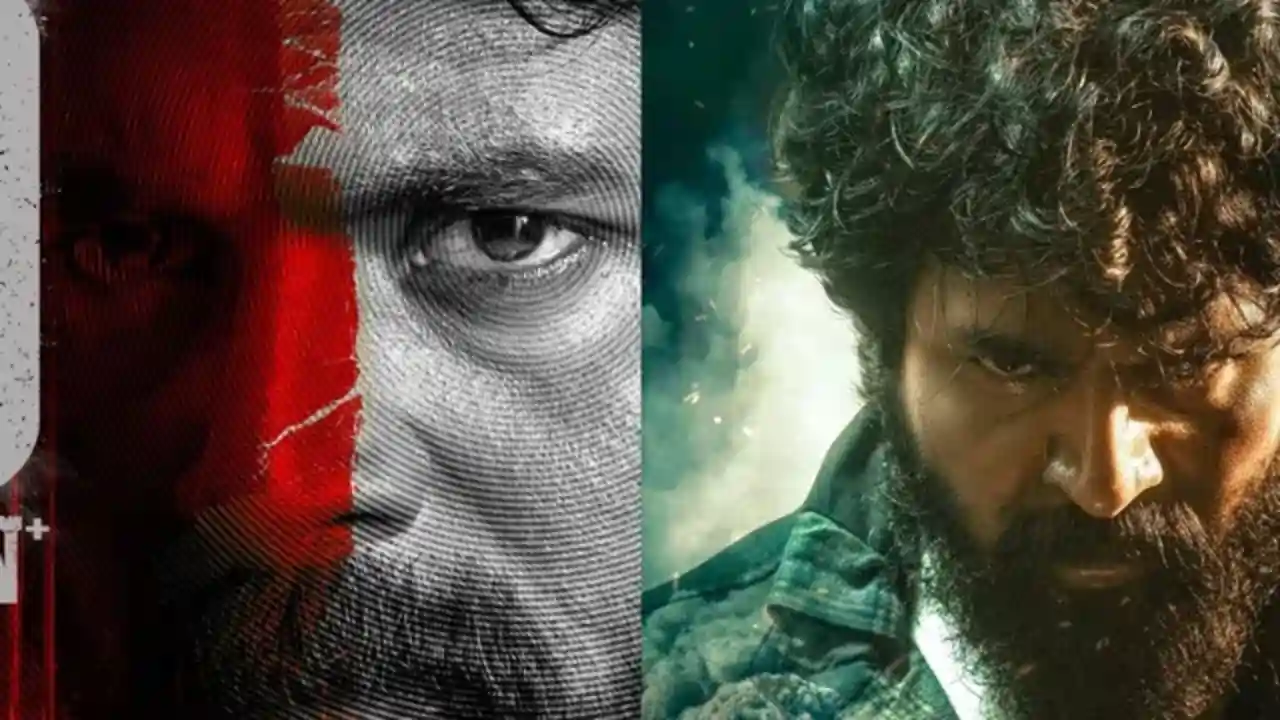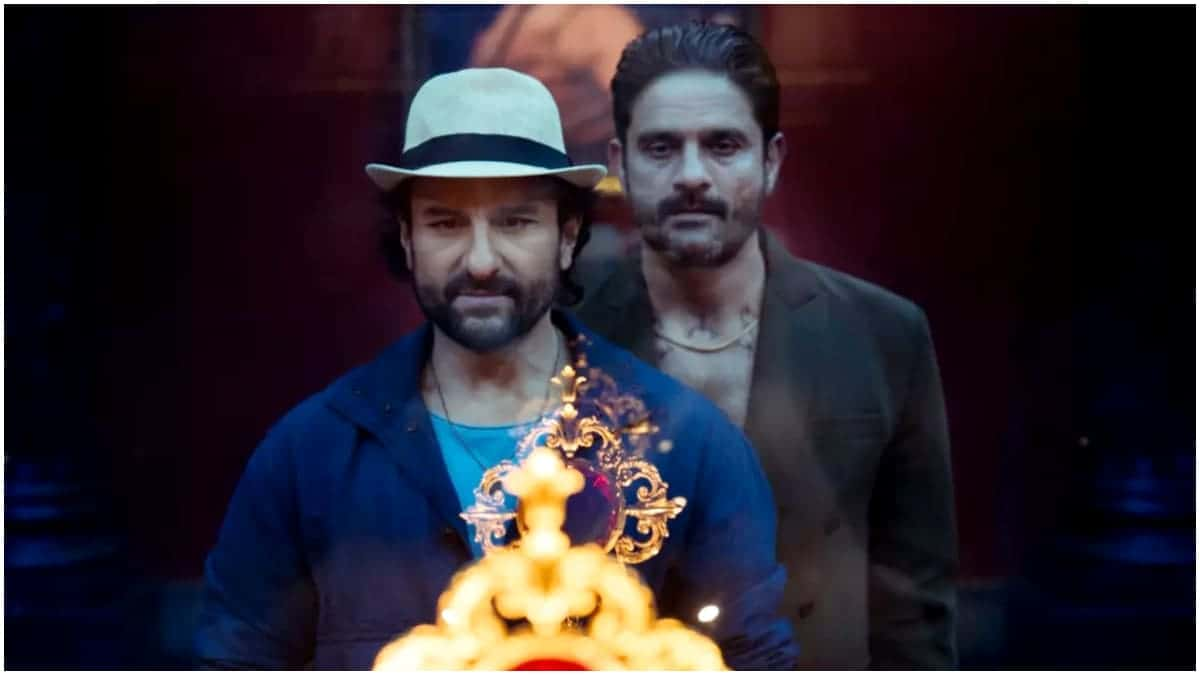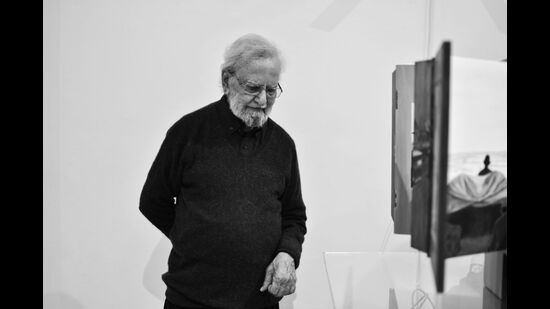
Fame by frame: A Wknd interview with artist Gulammohammed Sheikh
8 months ago | 88 Views
How do you bring so much together in your art? What does the process look like?
There are stories, events and anecdotes all piled up in the storehouse of one’s memory. They recur in unison, if you touch one of them. You then try to unravel the entangled mass of stories to see if they are dead or alive. You are not disappointed because they are all there, some half-hidden, some half-revealed.
Then there is one’s physical archive, of images from world art, built up over the years. One rummages through the mass of hundreds of illustrations and becomes entranced by some. One begins to select.
There is also the realm of the unknown. Scribble on paper or canvas and images emerge as though from nowhere. Continue and one sees that something is taking shape without you invoking it, and then you chase it. Sometimes, it reveals itself, and sometimes it turns elusive, but you don’t give up.
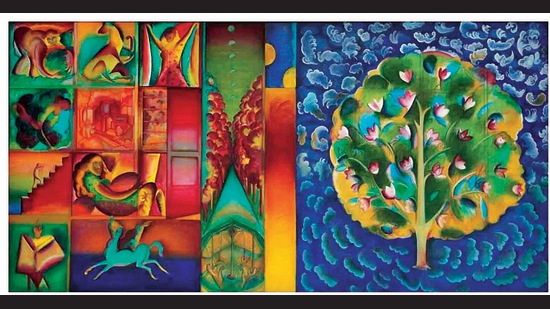
These are just three ways of approaching an image, but there are many more ways, and each time you begin, you have to be prepared to face them all. With patience, as you tackle them, they begin to connect within the pictorial structure you envisage.
In short, there is no singular approach. Every new work is a challenge you need to solve. Every new work is like a new game in sports, or a bandish you begin with in music.
The greatest fun is in improvising as you go along.
You also write poetry… does one influence the other?
Poetry unfolded in the company of painting in my school days. The two overlapped at times, but eventually asserted their individual identity, and emerged as independent practices.
In our divided world, how do you see the role of the artist?
Living in a country with a plethora of diverse cultures, you cannot but be a multicultural being. Our artistic traditions are equally diverse. From the paintings of Ajanta to those of the Mughal and Rajput eras, we have a great variety and great richness.
We have also encountered great visionaries such as Guru Nanak, Kabir and a host of Sufi and Bhakti saints, finally joined in our times by Mahatma Gandhi and BR Ambedkar. Their legacies and teachings still resonate in the lives of people.
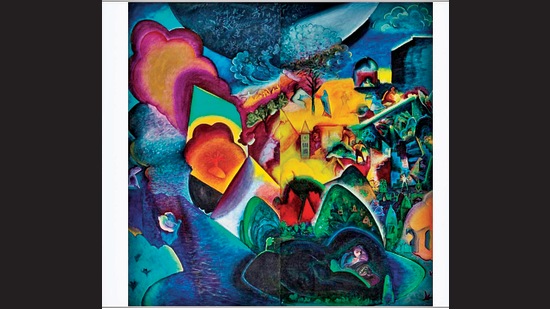
With these luminous examples I doubt if this country will fall into traps of singular ideologies and majoritarianism. Love, compassion and peaceful togetherness are the backbone of our survival. My work, in a small way, plays its part in fostering such ideals.
How does it feel when people say you “still” paint?
If Krishen Khanna can paint at 99, and Louise Bourgeois could sail into her 90s (referring to her famous work, The Sail)..., I am much younger. Artists don’t retire; they continue as long as their minds, hearts and bodies will support them.
Does today’s contemporary Indian art give you hope?
I think we have a fairly vibrant art scene, with three to four generations of artists at work. Equally gratifying is the fact that we have a good number of women artists, not to mention artist couples. There are also emerging Dalit voices in the visual arts.
Our art institutions, however, are in a shambles. Most of them suffer from lack of adequate staff and administrative support. The Faculty of Fine Arts (at Baroda’s MS University) where I taught, had eight staff members just in the Department of Painting. Now there are only two. The rest are employed on annual contract. The infrastructure laid down by the pioneers still exists, which allows for a degree of freedom in practice. But how long can we expect that to last?
What is your great big hope for India and its art?
My hope is that our people realise the wonders of our great artistic traditions and strive to comprehend, cherish and protect this heritage. I also hope that contemporary Indian art achieves the heights that it promises to, and is acknowledged internationally. The India of my dreams holds humane values of love and compassion and living together as its living ideals. The India of my dreams is also a nation of culture, where every child has the opportunity to learn and practise the arts.
Read Also: How to stop being a people pleaser; effective steps to reclaim your life
#







